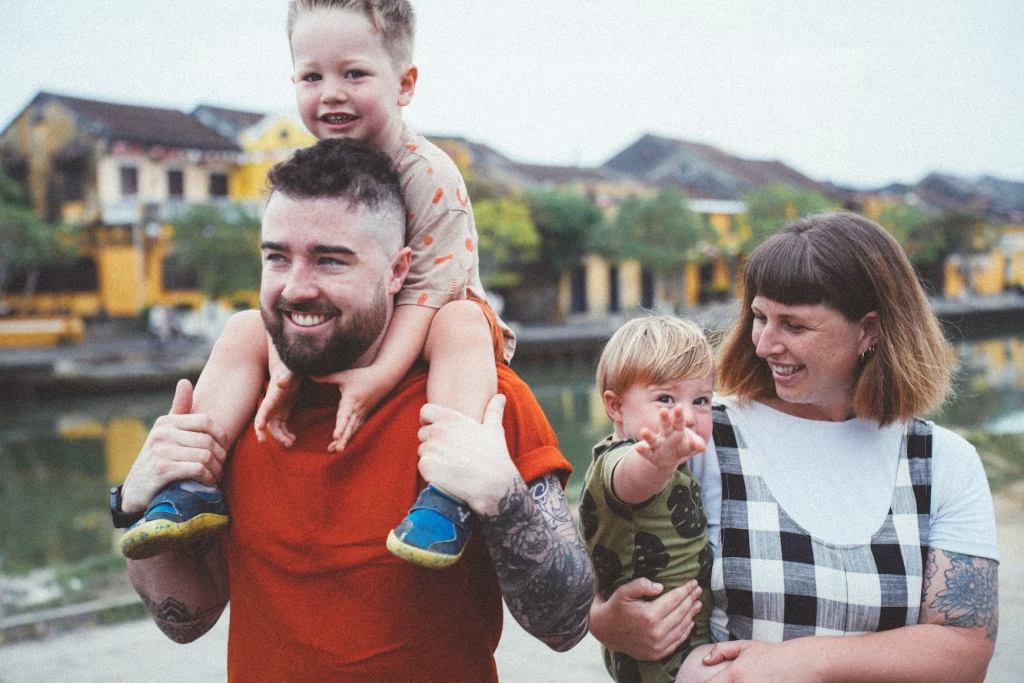
If you grew up in the 80s or 90s, there’s a good chance your childhood featured scraped knees, unsupervised bike rides until dusk, and entire afternoons lost in unstructured play. Fast-forward to the current era, and it’s a vastly different world of scheduled activities, child GPS trackers, and endless hand sanitizer.
While many of these shifts in parenting have arisen from good intentions—like boosting safety—they’ve also reshaped how children experience everyday life, and how we as parents manage our role. If you’re now raising kids but were once a “free-range” child, prepare to nod your head (or laugh) at these distinct changes in parenting culture.
1. We Went from “Come Home When the Streetlights Turn On” to Constant Check-Ins
In the 1980s, a hands-off approach allowed kids to roam neighborhoods and local parks with minimal supervision. This independence fostered resilience and self-reliance, aided by the strong sense that the neighborhood collectively watched over children.
By contrast, today’s approach involves more check-ins, phone trackers, and scheduled pickups—an often safety-driven strategy, yet one that might reduce spontaneous exploration. According to this article from Importikaah, modern parents juggle the tension between ensuring safety and giving children the autonomy we once took for granted.
2. Playdates Are Now on the Calendar—with Snacks and Supervision
If you grew up knocking on a neighbor’s door to ask, “Can Jamie come out and play?” you might be surprised how different it is now. Playdates often involve scheduled appointments, coordinated snacks, and watchful eyes. While this structure can ensure safety, it also reduces the organic friendship-building we experienced as kids.
Business Insider notes that this heightened organization and supervision gained traction in the 90s, making social interactions less “figure it out on your own” and more curated. Some might argue that today’s approach, while beneficial in certain ways, can hamper kids’ ability to navigate peer dynamics independently.
3. Parents Used to Hover Less—Now It’s Called Helicoptering
Older generations recall parents who allowed children to solve minor social and academic challenges on their own, often citing “You’ll work it out.” Nowadays, many parents feel compelled to oversee every detail of their child’s schedule, from double-checking homework to intervening in friend disputes.
While involvement isn’t inherently negative, LoveToKnow Parenting highlights how this evolution mirrors a more intense oversight of childhood experiences. The risk is that kids may grow up less prepared to handle adversity. Striking a balance—offering support without micromanaging—can yield resilience similar to that cultivated in the 80s and 90s.

4. The Parenting Style Evolved—from Detached to More Engaged
The 80s parenting style could appear more detached at times, but by the 90s, parents began adopting a more authoritative (balanced) approach—warm but firm. This trend accelerated in the 2000s, leading to the “intensive parenting” we see today, where detail-oriented involvement is the norm. While we’re arguably better at emotional support, we also wrestle with over-scheduling and limited free play.
Consciously blending the best of both worlds—a supportive environment plus some structured freedom—might help children develop critical thinking and independence without feeling abandoned.
5. Risk-Taking Used to Be Normal—Now It’s Often Seen as Negligent
If you grew up riding in the back of a station wagon without seatbelts or playing with questionable toys like lawn darts, you know what “risky” looks like. We learned self-reliance and tested boundaries physically in ways that might horrify modern parents.
Today, child safety seats, protective helmets, and strict playground regulations are standard—an improvement in many respects, but they can also limit unstructured, slightly risky play that fosters resilience. Let Grow points out that while safety standards save lives, too much caution may curb children’s development of risk assessment skills.
Navigating Today While Remembering Yesterday
Parenting shifts remind us that every generation blends its own knowledge, concerns, and cultural influences. The digital era brings new tools and anxieties—yet many of us look back on the 80s and 90s with nostalgia for a less complicated, more free-form life.
That doesn’t mean going back to ignoring seatbelts or letting kids run wild; it means thoughtfully merging the best parts of our past—autonomy, curiosity, resilience—with modern safety and emotional awareness. Ultimately, good parenting is about adapting in ways that foster growth, not merely replicating old methods or embracing new ones blindly.
Have you integrated any “old-school” elements into your modern parenting? Share your experiences in the comments—others might find creative inspiration in your fusion of nostalgia and practicality.
Read More
- Parenting the Second Time Around: 12 Reasons Your Parents Shouldn’t Be Raising Your Kids
- Parenting Triggers Old Childhood Wounds—Here’s How to Recognize Yours

Samantha Warren is a holistic marketing strategist with 8+ years of experience partnering with startups, Fortune 500 companies, and everything in between. With an entrepreneurial mindset, she excels at shaping brand narratives through data-driven, creative content. When she’s not working, Samantha loves to travel and draws inspiration from her trips to Thailand, Spain, Costa Rica, and beyond.
Leave a Reply